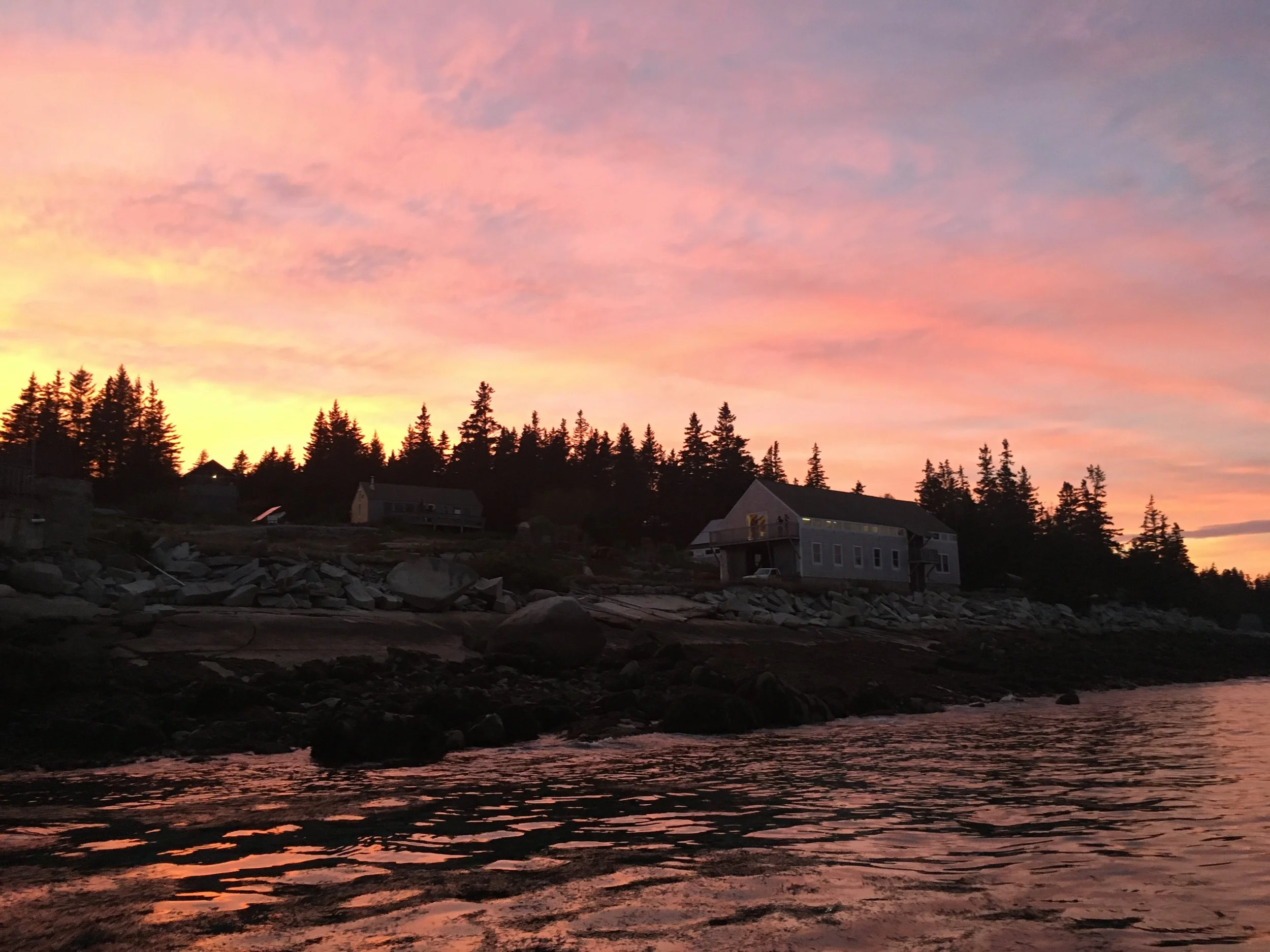Guest blog post by Science Educator Dana Colihan
Austin and Irene make apple cider
Last Week, 11 high school students from North Haven Community School journeyed to Hurricane Island for their fall expedition. This felt like a particularly important group to have because these students live so locally. Many have grown up on North Haven, have visited Hurricane Island before and will come here again. This year’s class has also three international students and a few new magnet students from the mainland. It was a joy to share the island with this mix of students who were both returning here and experiencing the island for the first time.
With this group, our activities had elevated significance and connections beyond our shores. The place based education that we teach on Hurricane was not confined to this island, but were pieces of knowledge these students could bring back home with them.
Students strategize the raft challenge
The most memorable example of this was teaching the students about the scallop aquaculture research occurring on the island. If climate change continues to warm the Gulf of Maine, many fisherman are afraid lobsters will move further north and to deeper waters in search of colder temperatures. People are looking to aquaculture as an alternative or addition to lobstering. Still using the ocean, it could be a more controlled and sustainable option.
Tyrese and Arnd belaying at the rock wall
To grow scallops on Hurricane Island, we deploy spat bags to harvest them in their planktonic form. Upon showing the spat bags to the students, one joked, “Hey, can I take one of those home with me?” Another was excited to see our aquaculture equipment in action, having already done a lot of research about scallop aquaculture techniques himself. Both of these students have grown up lobstering and come from six and seventh generation lobstering families. If they are already interested in this process in high school, there is hope that they could be growing their own scallops in a few years! While it can be tricky to get a license, our Research Technician Bailey Moritz was able to connect them with additional information about the process.
Working with these students reminded me of the value of doing placed based education with people connected to place. It is important to share this island with individuals who have never been to Maine or an island before. It is sometimes even more meaningful to share it with communities who live a just a stone's throw away.




